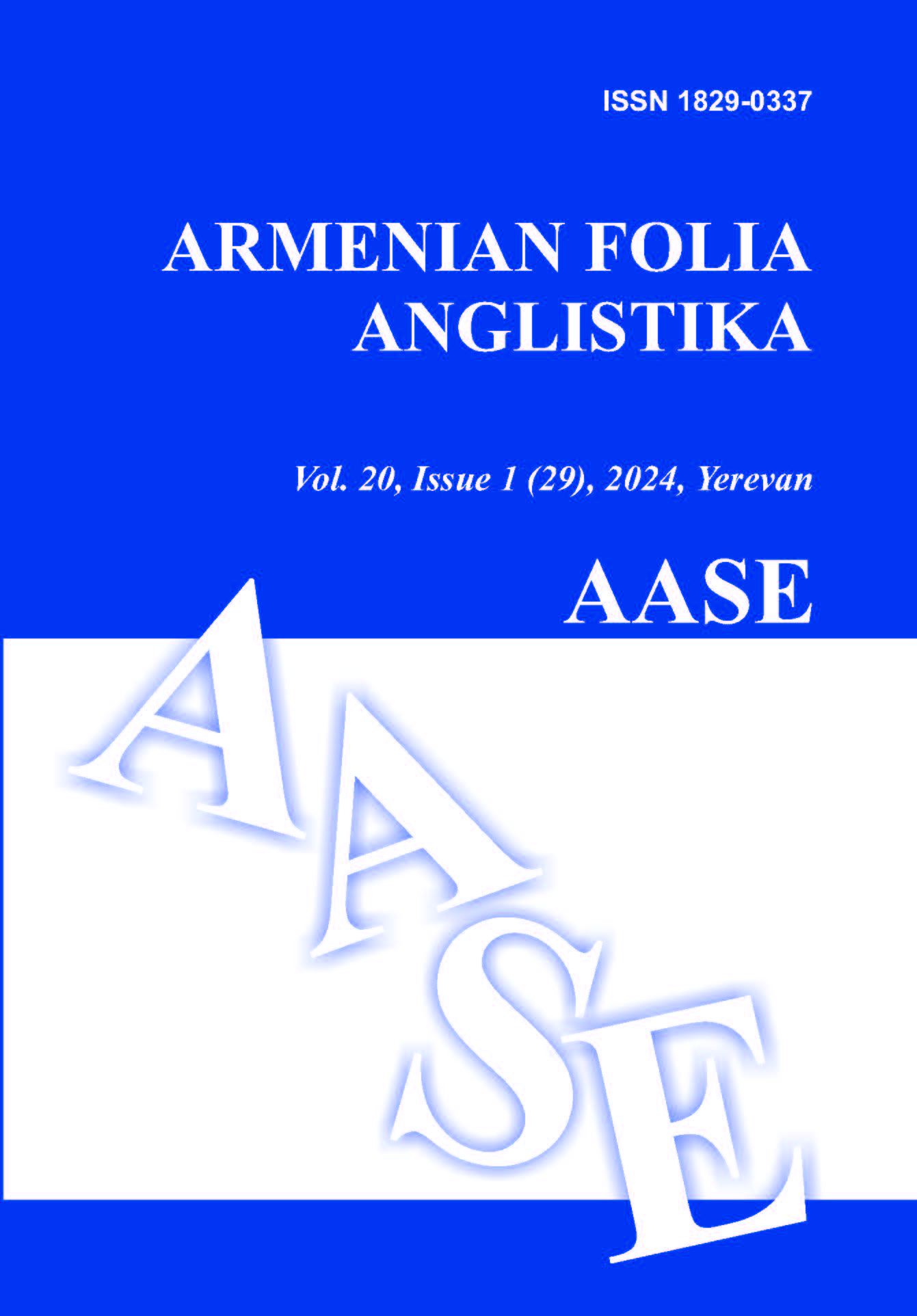FEATURES OF CHRONOTOPE IN “THE WORDS” BY JEAN-PAUL SARTRE
DOI:
https://doi.org/10.46991/AFA/2024.20.1.153Keywords:
existentialism, chronotope, spatiotemporal, memory, transfer, concept, freedomAbstract
The article analyzes the features of the chronotope in the autobiographical novel “The Words” by the famous French writer Jean-Paul Sartre. The center of the analysis is the ways in which Sartre creates a complex and multi-layered domain of actions for his heroes, where time and space become not only physical but also philosophical realities. Particular attention is paid to how Sartre uses the chronotope to develop ideas of freedom, responsibility and existence. Through the analysis of everyday situations and the inner monologue of the main characters, the article reveals how the chronotope becomes an integral part of the concept of human existence in Sartre’s world.
The article also analyzes the transformation of the classic chronotope in an autobiography, new manifestations of the spatiotemporal concept, as well as the chronotope of retrospective depiction through the author’s personal memories.
Downloads
References
Bakhtin, M.M. (1986). Formy vremeni i hronotop v romane. Očerki po istoričeskoj poétike [Forms of time and Chronotope in novels]. Bahtin M.M. Literaturno-kritičeskie statʹi. Moscow: Hud. Liter.
Kandalinceva, L. Ye. (2001). Problema svobody i vybora vo francuzskom ékzistencializme (Ž. P. Sartr, A. Kamû) [The Prolem of freedom and choice in French existentialism]. Filosofiâ i Obŝestvo, 2(23), 97-107.
Levčenko, E.V. (2005). Hudožestvennoe tvorčestvo kak pereživaemoe bytie [Artistic creativity as an experienced being] // Voprosy Filosofii, 10, 145-150.
Halizev, V. (2004). Teoriâ literatury [Theory of Literature]. Moscow: Vysshaja shkola.
Sartr, ZH.-P. (1993). Barrer [Words]. Yerevan: Sovetakan grogh.
Sartre, J. P., (1946). L'existencialisme est un humanisme. FOLIO ESSAIS.
Sartre, J. P. (n.d.). L'existence precede l'essence. La - Philo. Retrieved February 11, 2024.Sartre, J. P. L'homme est condamne a etre libre. Apprendre la Philosophie Retrieved February 25, 2024.
Sartre, J. P. (1943). Being and nothingness. Routledge Edition.
Sartre, J. P. (1938). Nausea. Aramont Library Collection.
Downloads
Published
How to Cite
Issue
Section
License
Copyright (c) 2024 Author(s)

This work is licensed under a Creative Commons Attribution-NonCommercial 4.0 International License.














